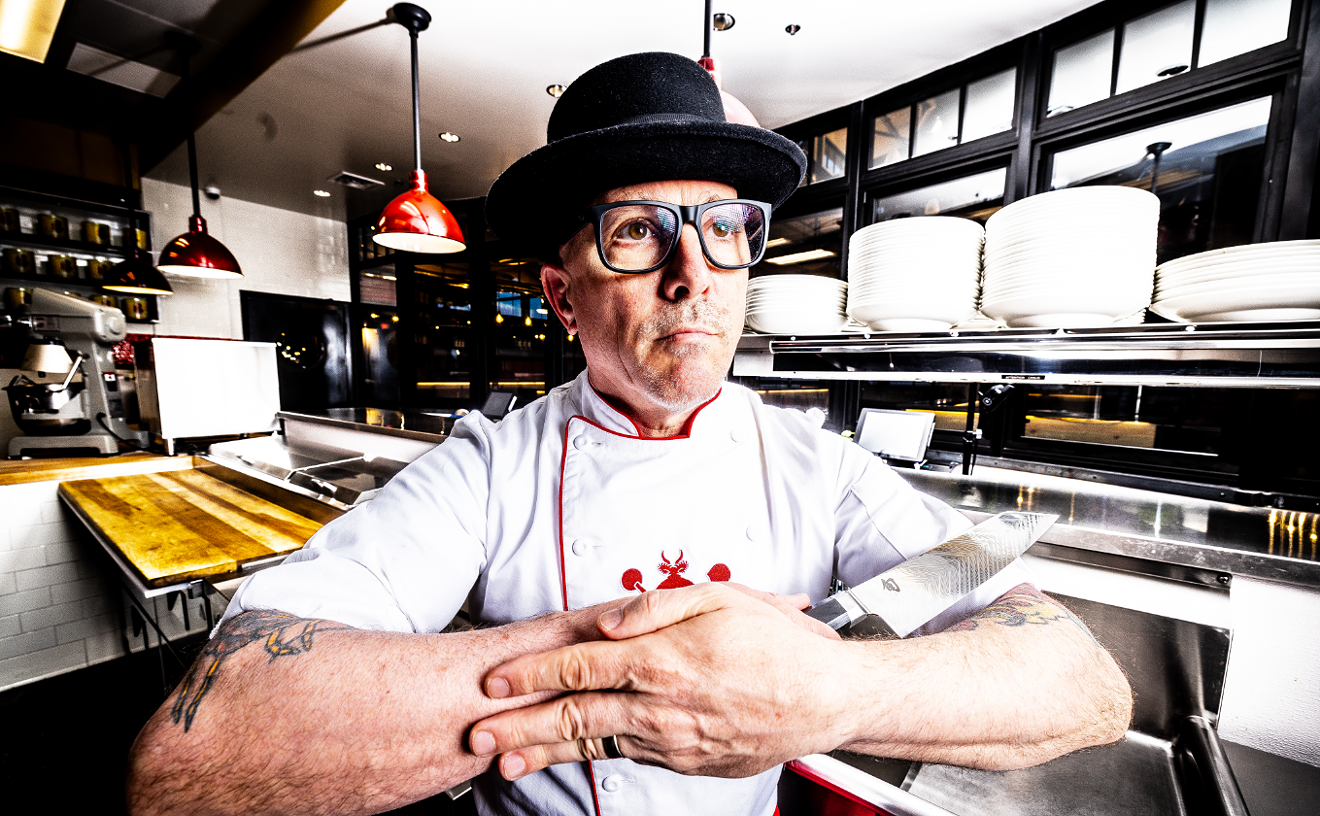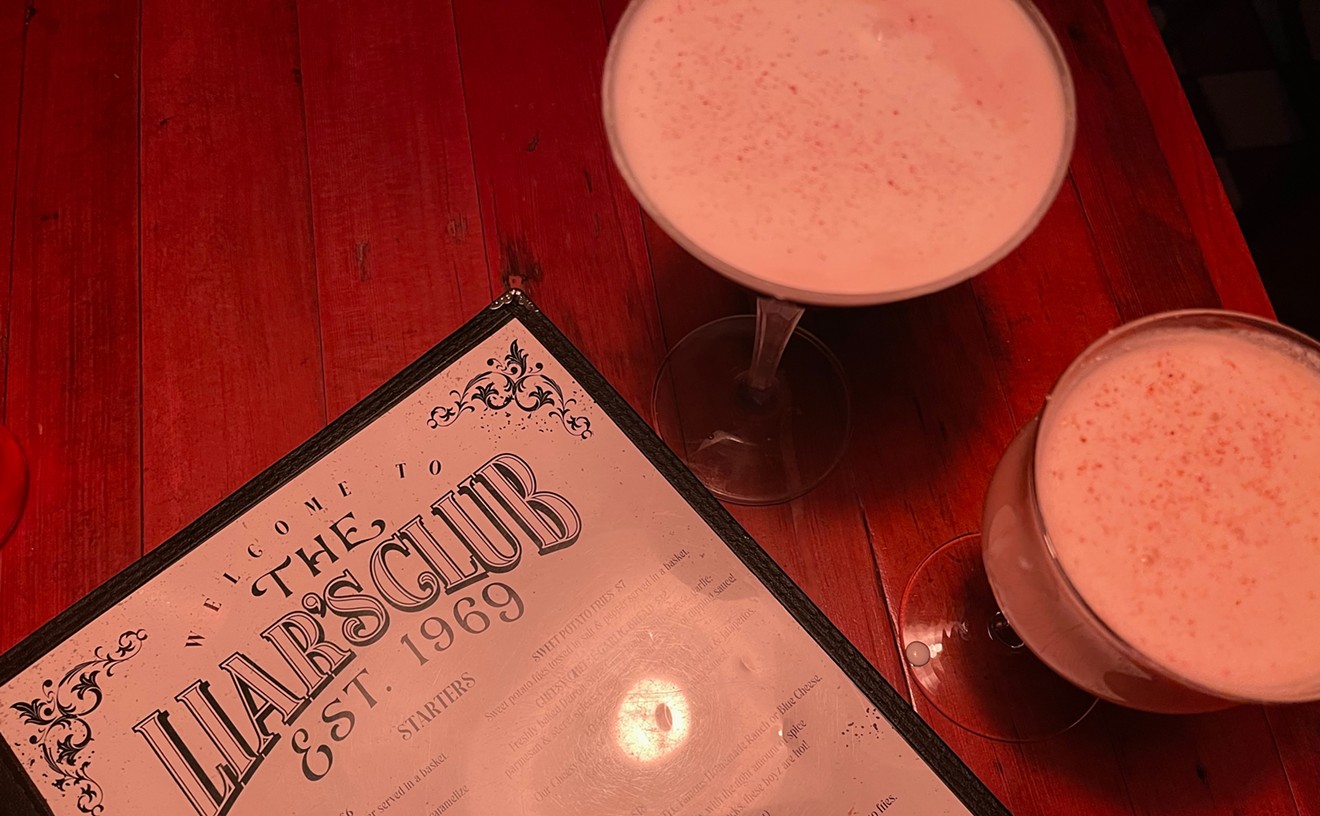Fortunately for the brothers, when your protagonist is personified as Jack Black, you can get away with a lot. Normally relegated to supporting roles, most often as the smart-assed best buddy (a role fulfilled here by Jason Alexander), Black's Hal is a riff on the rock 'n' roll stage persona he embodies in his band Tenacious D. With determined eyes and a big-shot swagger, this is a guy who's determined to make you believe he's the biggest stud in the world, though deep down we suspect even he ain't buying it. Hal thinks he's God's gift to women simply because he can't accept any lesser truth, and because his dying father's last piece of advice to him was, "Don't be satisfied with routine poontang."
It's taken as a given that Hal has had some romantic success, but when we catch up with him, he's obliviously striking out, having convinced himself the comely neighbor across the hall (Susan Ward) is actually dating him, even though she has encouraged him to move away. What's odd is that, apart from being a superficial pussy-hound, Hal's a saintly soul: He even has a handicapped friend with spina bifida, a condition that forces the guy to go around on all fours.
Hal's life changes when he finds himself trapped in an elevator with terrifying self-help guru Tony Robbins, playing himself. Using a trick that exists only in the movies, Robbins hypnotizes Hal to see only a person's inner beauty, which in practical terms means he now sees supermodels where the rest of the world sees only the fat and "beauty challenged." It's a concept that doesn't entirely hold up: Though the notion that Hal can't feel the extra poundage on his lady friend is explained away with the line "The brain sees what the heart wants it to feel," the execution of it is flawed. If, as Robbins says, Hal is truly being deprogrammed from conventional standards of beauty, how is it that when he looks at "nonbeauties" he sees them as women who look conventionally beautiful? The answer, naturally, is that such a stretch allows the producers to cast Gwyneth Paltrow in the lead rather than, say, Loretta Devine, and stage a series of sight gags involving Paltrow acting fat but appearing waiflike.
It's also a device that curiously deflates the Farrellys' usual humor; by the time Hal's hypnosis inevitably wears off, we are practically dared to be heartless enough to laugh at the strange-looking characters we have previously seen through Hal's eyes as movie-star sexy. The only one who seems safe to mock is one with chronic dandruff, an affliction that's hardly a laugh riot. Oh, there's also a character with an absurdly exaggerated Irish accent. Ha ha.
There is one moment late in the film that recalls the Farrellys of old, a gross-out that goes farther than you think it can, much like the infamous zipper shot in There's Something About Mary. Most of the rest of the film, however, seems as though it could have been improvised by Black: When he's on fire, it doesn't take much directorial talent to simply leave the camera on him and let him go to work. And Tony Robbins makes a wonderful straight man both to Black and to Alexander, as Hal's even shallower friend with spray-on hair who can't stand that his best bud no longer hates fatties. Robbins has been parodied by everyone from wrestler Diamond Dallas Page to Ben Stiller, yet in mocking himself, and allowing Black to riff on that caricature, he outshines most of his imitators.
The only pitfall with making Black a leading man, especially in a love story, is that inevitable moment when the dream is deflated and our hero's sincerity turns to sadness. Forcing a cocky bastard like Black to play poignant is shaky business indeed, and the Farrellys try to take the easy route by cueing up a syrupy adult alternative song on the soundtrack rather than trying to show us how shallow Hal is deepening. Fortunately, Black regains his spark when the time comes to win back the girl. It's almost too late to save the movie, but not quite.










